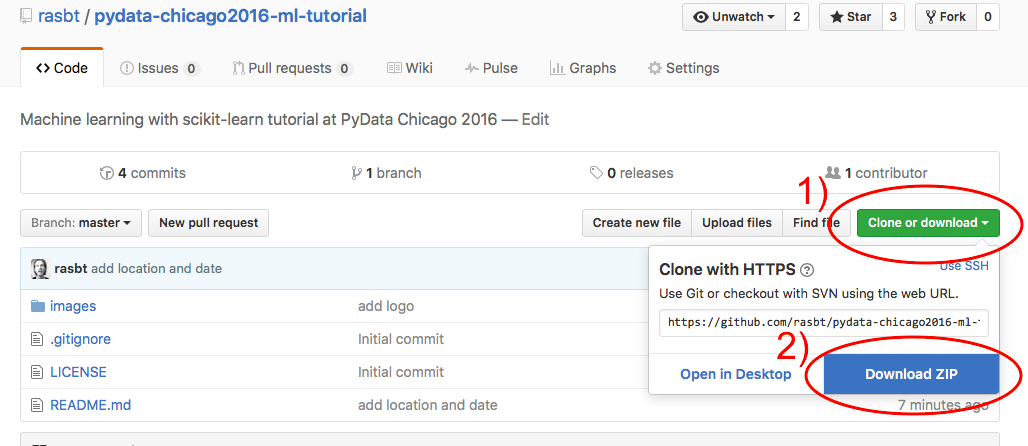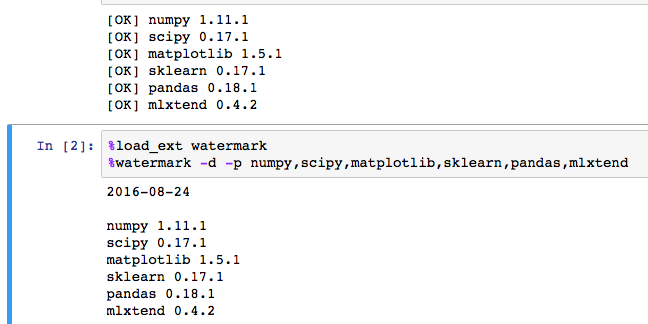rasbt / Pydata Chicago2016 Ml Tutorial
Projects that are alternatives of or similar to Pydata Chicago2016 Ml Tutorial
pydata-chicago2016-ml-tutorial
Learning scikit-learn -- An Introduction to Machine Learning in Python @ PyData Chicago 2016
This tutorial provides you with an introduction to machine learning in Python using the popular scikit-learn library.
This tutorial will teach you the basics of scikit-learn. I will give you a brief overview of the basic concepts of classification and regression analysis, how to build powerful predictive models from labeled data. Although it's not a requirement for attending this tutorial, I highly recommend you to check out the accompanying GitHub repository at https://github.com/rasbt/pydata-chicago2016-ml-tutorial 1-2 days before the tutorial. During the session, we will not only talk about scikit-learn, but we will also go over some live code examples to get the knack of scikit-learn's API.
If you have any questions about the tutorial, please don't hesitate to contact me. You can either open an "issue" on GitHub or reach me via email at mail_at_sebastianraschka.com. I am looking forward to meeting you soon!
- View the presentation slides here / on SpeakerDeck
- View the code notebook here / on nbviewer
- Video recording of the talk on YouTube
Schedule
This repository will contain the teaching material and other info for the Learning scikit-learn tutorial at the PyData Chicago 2016 Conference held Aug 26-28.
- When? Fri Aug. 26, 2016 at 9:00 - 10:30 am
- Where? Room 1
(I recommend watching the PyData schedule for updates).
Obtaining the Tutorial Material
If you already have a GitHub account, the probably most convenient way to obtain the tutorial material is to clone this GitHub repository via git clone https://github.com/rasbt/pydata-chicago2016-ml-tutorials and fetch updates via pull origin master
If you don’t have an GitHub account, you can download the repository as a .zip file by heading over to the GitHub repository (https://github.com/rasbt/pydata-chicago2016-ml-tutorial) in your browser and click the green “Download” button in the upper right.
Installation Notes and Requirements
Please note that installing the following libraries and running code alongside is not a hard requirement for attending the tutorial session, you will be able to follow along just fine (and probably be less distracted :)). Now, the tutorial code should be compatible to both Python 2.7 and Python 3.x. but will require recent installations of
Please make sure that you have these libraries installed in your current Python environment prior to attending the tutorial if you want to execute the code examples that are executed during the talk. Please also note that executing these examples during/after the talk is merely a suggestion, not a requirement. I highly recommend you to open the code/check_environment.ipynb](code/check_environment.ipynb) notebook as a Jupyter notebook, for instance by the notebook via
jupyter notebook <path-to>/pydata-chicago2016-ml-tutorial/code/check_environment.ipynb
and executing the code cells:



